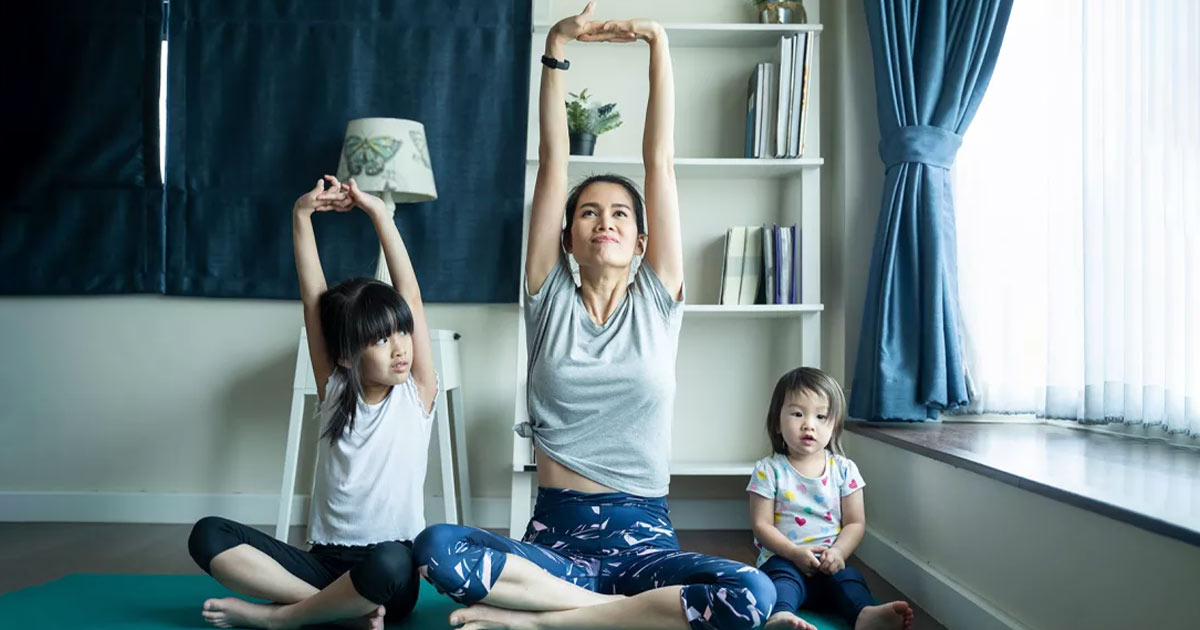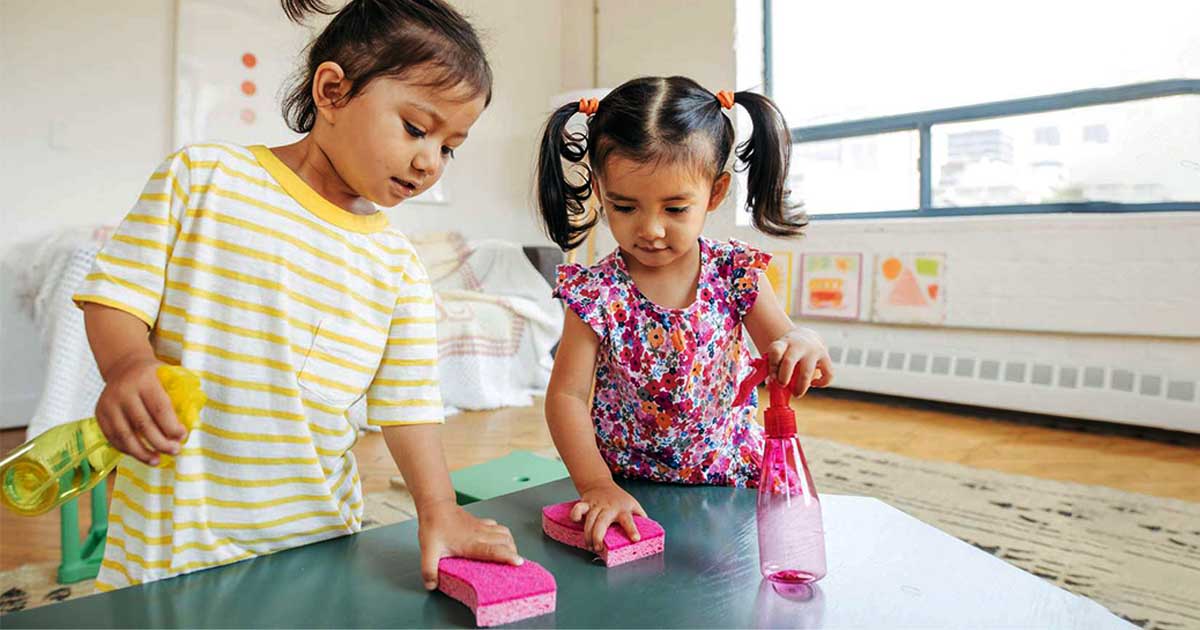When you decide to become a parent you make an active choice to place your child’s needs over your dreams and aspirations. When parents take on the journey of starting a family or having children, they often hit a pause on their aspirations and desires.
Research shows that it is a common cause of psychological problems in parents, ranging from postnatal depression to the baby blues. This is why people who choose to start families and should make self-care a top priority.
This blog is for you and it was written to help you find more time for yourself. It covers every aspect of this subject from emphasizing the importance of self-care in parenting to giving practical recommendations.
What Is Self-Care For Parents?
Caring for oneself as a parent includes activities that can help them become healthier and happier. This refers to physical aspects such as healthy meals, exercise regularly, enough sleep and hygiene.
Similarly, mental health is taken care of by managing pressure, setting limits, and sharing emotions with others. Emotional self-care means being grateful, showing kindness and forgiveness or considering the other’s perspective.
Furthermore, learning what is self care and why is it important is also crucial as it enables you to find spiritual peace and rediscover your own passions!
However it should be noted that self-care is not indulgence or selfishness. This does not mean running away from responsibilities nor abandoning your parental duties; rather it is taking care of yourself in order to feel more prepared for both joys and troubles that come along with raising children. The saying people often use states you cannot pour from an empty cup.
Self-Care Tips For Parents
Plunge into this treasure trove of self-care tips for parents crafted just for busy parents like you. Because guess what? Parenting is as much about nurturing our kids as it is about nurturing ourselves!
1. Start with a Morning Me-Moment
Before the household wakes and demands you to begin your chores, dedicate 10 minutes to mindfulness, thinking about the present moment.
Whether it’s meditating, stretching, or simply savoring your coffee, this is your time.
2. Dive into a Bookish Escape
Remember the pre-parenting days when you got lost in a book? Experts have focused on reading books as a massive part of what is self care and why is important for your mental health!
Rekindle that romance! Even a few pages a day can take you to a different world, where the problems aren’t yours to solve. This can be one of the best self-care tips for parents who are always bookworms at their heart.
3. Bring Nature Indoors
Whether it’s an aromatic plant, some fresh flowers, or even a mini succulent garden—having a piece of nature in your space can provide a therapeutic touch to your everyday.
4. Dance the Stress Away
Put on your favorite outfit and have an improvised dance session! It’s an instant mood booster and a great way to fit in some exercise. This can be the most fun among the self-care tips for parents as it simply requires you to let go of control.
Read More: 10 Effective Parenting Tips For Teens
5. Indulge in Guilty Pleasures
Whether it’s that rich chocolate cake or a binge-worthy series, allow yourself occasional indulgences. Don’t forget to put your kids to sleep before engaging in the pleasure, though. It’s all about balance!
6. Nap Like a Boss
If your child is napping or occupied, grab a quick power nap. Even a short rest can recharge your batteries and boost your mood and cognition.
Read More: Sleep Meditation: 6 Mental Health Benefits And Tips To
7. Journal Your Journey
Parenting is a roller coaster of emotions. Journaling can help you process feelings, celebrate small victories, and reflect on cherished memories.
8. Nightly Wind-Down Rituals
Create a bedtime ritual for yourself. Maybe it’s a skincare routine, reading, or gentle stretches—something to signal your body that it’s time to relax and fall asleep.
9. Connect with Fellow Parents
Having a chat with someone who “gets it” can be invaluable. Join parent groups, or online forums, or simply set up regular coffee dates with your parents.
They did the difficult task of nurturing a baby too.
10. Plan Mini-Adventures
It could be a solo trip to the cafe, a spa day, or even an evening walk. These mini-adventures offer a break from routine chores and rejuvenate your spirit.
Once you start taking care of yourself, you will notice a drastic improvement in your performance as a parent. Lets’s take a deeper look at why is self-care important for parents.
Read More: Self Care Strategies For Parents Whose Cups Are Too Full From Parenting
Benefits of Self-Care for Parents
Raising children is like taking care of yourself as a parent. Self-care for parents has the following benefits:
1. Energy, Focus, and Feeling Good
Getting some time to yourself will surely boost your energy levels, improve concentration and make you feel better in general. That means you can be close by and look at your children more.
2. Dealing with Stress
Parenting is sometimes quite trying. You can avoid stress that is interfering with your mood, health, and relationships if you deal with it properly.
Learning how to do Self-care does this by reducing anxiety, relieving tension from your body, and quietening the mind.
Read More: New Dad Stress? 10 Alarming Signs And Effective Tips on How To Manage It
3. Avoiding Burnout
You may feel exhausted to the point of burnout due to excessive strain on you. It can also make you feel sad, uneasy or just unwell about yourself. This helps you steer clear of burnout by keeping the balance between what must be done and what is left in your tank.
4.Teaching Good Habits
Your children gain a lot through watching their parents. They know that taking care of yourself is important if they see that happen in front of them. This also educates them about personal limits and self-preservation.
Read More: How To Raise A Child? 5 Step Guide For Raising Happy Kids
Therefore, self-care for parents isn’t merely nice—it’s a way to preserve well-being for all members of the family.
Why Is Self-Care Important For Parents?
Parenting is like running without reaching the finishing line. Parents are always putting off their needs as days merge into nights and schedules become more packed. But “You cannot pour from an empty cup.” – A burned-out parent can’t give their best just like an empty cup cannot pour.
Self-care is not self-centered, it is necessary. This ensures that parents have enough strength, patience, and optimism to take their children through highs and lows of life.
1. Self-Care Helps Keep Parents Mentally Fit
Have you ever stopped to wonder why self-care for parents? Parenting is just like walking through a maze of emotions. Those twists and turns will be too much without some self-love.
We don’t call “self-care” a “parent’s timeout.” It provides guidance for us. Taking small breaks helps parents maneuver the challenges of the maze better. And what’s more? Reduced anxiety implies low levels of those wily stress hormones.
Need help with daily parenting obstacles? Self-care comes in handy sometimes. So, dear parents, while you are on this journey, take time to care for yourself along the way for it to be fun and worth it!
Read More: Mental Health Tips for Kids: 5 Powerful Parenting Strategies To Support Your Child’s Mental Health
2. Kids Learn by Watching
When kids see their parents taking a little break in their busy day, they learn a lot. Parents don’t even need to say it; their actions during self-care moments whisper, “It’s good to care for yourself.”
Feeling good and staying centered helps parents show their kids how to handle emotions. And a relaxed, cheerful parent? It’s like a comforting hug, making kids feel secure. Remember, parents, every self-care moment is a silent lesson for your little ones!
3. Shaping Tomorrow’s Adults
Those who ace the self-care for parents routine aren’t just doing it for themselves; they’re molding future strong adults. When kids see this, they grow up resilient, emotionally smart, and ready to face life head-on.
And the best part? These kids are set to have fulfilling, joyful relationships as they grow. So, parents, every self-care moment is like gifting your kids a secret map for a great life ahead!
Read More: What Is Child Development? Understanding the 5 Crucial Stages of Child Development
4. The Silent Lesson of Self-Care
Parents who have mastered self-care as a routine teach their children a valuable lesson: “we should take care of ourselves just like we do for others.”
With mental well-being being a major concern in today’s world, parents practicing self-care become trendsetters. They show that taking care of our minds and emotions isn’t simply a good idea—it is necessary!
A Word From Mind Family
In the task of raising a child, it becomes easy at times to forget about oneself. A guide for those who are passionate about their feelings and want to stay strong in all situations.
During our journey, one of the most notable things was that children tend to behave like their parents. Parental self-care offers a great opportunity for teaching kids to do the same.
Mothers and fathers should maintain these few moments of self-care because it is not just about them but also about a successful and healthy family trip.
Frequently Asked Questions (FAQs)
1. What is self-care for parents?
Self-care for parents means activities like a healthy diet, exercise, and stress management. It’s about nurturing well-being without neglecting responsibilities, ensuring parents are better equipped for the challenges and joys of parenting.
2. Why is self-care important for parents?
Self-care is vital for parents to navigate the maze of emotions in parenting, keeping stress low and ensuring mental fitness. Taking short breaks through self-care allows parents to handle challenges gracefully and provide the best for their children.
3. What are some self-care tips for parents?
Self-care tips include morning mindfulness, reading, bringing nature indoors, dancing, occasional indulgences, power naps, journaling, nightly rituals, connecting with fellow parents, and planning mini-adventures. These simple practices help parents recharge, avoid burnout, and set a positive example for their children.


















Leave a Reply